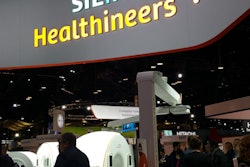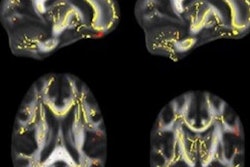Dear AuntMinnie Member,
With rising concerns over gadolinium deposition, the radiology community is searching for new ways to perform MRI scans without gadolinium-based contrast agents. This week, we bring you an article on a new study in Radiology in which German researchers discussed one such technique for breast MRI.
The protocol is based on diffusion kurtosis imaging, a form of diffusion-weighted MRI that analyzes the distribution of water to evaluate breast tissue at a microscopic level. The group used a software algorithm based on a kurtosis radiomics model to analyze data and extract what's needed to correctly characterize suspicious lesions. Learn more about how it works by clicking here.
Noise from MRI scans is another drawback to the modality. In another new study in Radiology, Chinese researchers analyzed the effect on hearing for people who underwent 3-tesla scans. They found that MRI did have an effect, but fortunately it appeared to be temporary. Get more details by clicking here.
Finally, check out this story on a new study out of Texas, where researchers using diffusion-tensor imaging discovered that a lack of physical fitness can lead to deteriorated nerve fibers in the brain -- and eventually cognitive decline.
These stories and more are available in our MRI Community, at mri.auntminnie.com.
Radiologists and the future of AI
The arrival of artificial intelligence (AI) seems to be a foregone conclusion in radiology. So what's the best way for radiologists to prepare for this new reality? That's the subject of a new thought piece by Dr. Eric Topol and Dr. Saurabh Jha that we're featuring in our Artificial Intelligence Community.
They believe that AI offers an opportunity for radiologists by giving them the ability to explain imaging findings in the context of a comprehensive dataset that includes demographic, genomic, anatomic, and physiological features. Radiologists must try to ensure that they own this process, rather than clinicians owning it.
Learn about other benefits and challenges of AI by clicking here, or visit the community at ai.auntminnie.com.




















